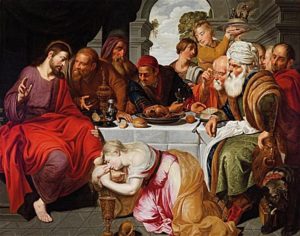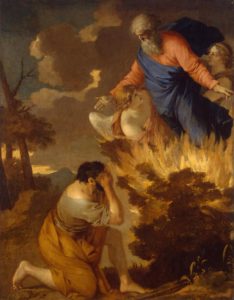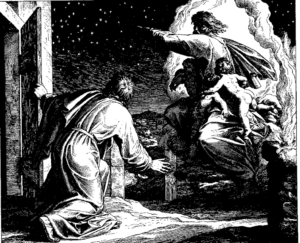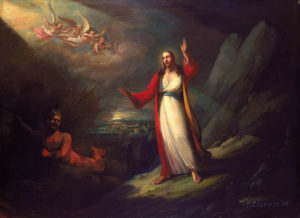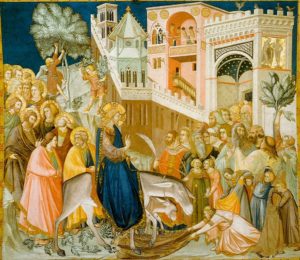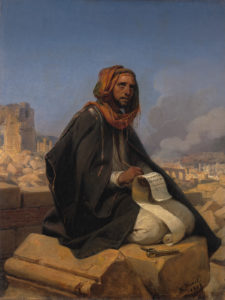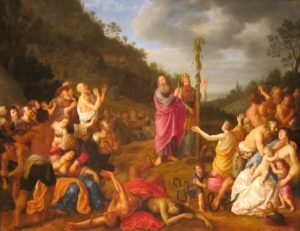Thoughts on the Lessons for Ash Wednesday, Feb. 26, 2020
First Reading: Isaiah 58:1-12
On Ash Wednesday we begin Lent. Traditionally a time of penitence and sacrifice, the 40 days of Lent invite us to perform acts of devotion and sacrifice as we reflect on the wrongs that we have done, and recognize the simple truth that we will not live forever.
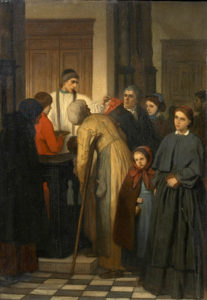
Ash Wednesday (1866), oil painting on panel by Charles de Groux (1825-1870). Stedelijk Museum Wuyts-Van Campen en Baron Caroly, Liere, Belgium. (Click image to enlarge.)
Ash Wednesday’s readings begin with a selection from Isaiah that we heard just a few weeks ago. The prophet, addressing the people returning from exile, makes clear that public demonstrations of fasting and prayer, sackcloth and ashes are not enough to please God unless we also show our righteousness through service and love of neighbor. In language that might have informed both Jesus and his mother, Mary, the prophet reminds the people to oppose injustice: free the oppressed, feed the hungry, house the homeless, and clothe the naked.
Alternate First Reading: Joel 2:1-2,12-17
Joel ranks as one of the minor prophets. The book that bears his name is only three chapters long, and modern theologians aren’t even sure when he lived. We know that “Joel” means “The Lord is God” in Hebrew; and Joel may have prophesied after the return from exile to Jerusalem. Much of the short book deals with the people’s prayerful response to a plague of locusts, and in that setting, this alternate reading offers a liturgical look at a period of penitence and sacrifice … something to think about as we enter Lent.
Psalm: Psalm 103:8-14
Hear this in the Psalm for this day: God made us all from dust. God knows well that we are all only dust. We are human: broken and sinful, often wicked. Yet God’s compassion and mercy vastly exceed God’s anger. God does not punish us as we might fear that our sins deserve, the Psalmist assures us; rather, God shows mercy wider than the world itself, forgiving our sins and welcoming us in a parent’s warm embrace.
Second Reading: 2 Corinthians 5:20b-6:10
Throughout much of his shorter second letter to the people of Corinth, Paul attempts to work out an ongoing quarrel with the people of this contentious little church. In these verses he speaks of reconciliation. He lists the pain and suffering that he has endured as a servant of God, from beatings and imprisonment to sleepless nights and hunger. Accept God’s grace and work together in Christ, he urges the people, as Christ reconciled us with God by taking human form and dying for us.
Gospel: Matthew 6:1-6,16-21
As Lent begins, our Ash Wednesday Gospel seems ideally suited to the season. Jesus, in the middle of Matthew’s extended account of the Sermon on the Mount, teaches the crowd how best to practice almsgiving, prayer, fasting, and self-denial of worldly pleasures. All of these have become traditional Lenten practices. In words that might remind us of the day’s Isaiah reading, Jesus urges the people to practice humble prayer. Shun hypocrisy. Don’t show off. Keep your charity, your prayers, and your fasting to yourself. Don’t brag about your fast. Don’t hoard fragile, transient earthly riches, but store in heaven the treasures that last.

